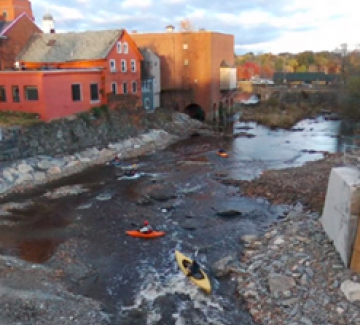All News
Six awards were made in the 2020 competition for research seed funds.
A seed funding opportunity is available to develop curriculum or training enhancements that will better prepare students to enter a career in biomaterials or bio-related advanced manufacturing.
Old dams present a policy dilemma. If nothing is done, they will continue to deteriorate, potentially with bad results. Yet maintenance and upgrades are expensive. UNH researchers publish the results...
Chenfeng Ke of Dartmouth, a member of the NH BioMade team, was awarded a prestigious Faculty Early Career Development (CAREER) award from NSF.
A series of research briefs provides an overview of research taking place on the Future of Dams project. New briefs are added regularly!
View the Final Outcomes Report for NH EPSCoR's 8-year Ecosystems & Society project.
NH’s biotech and biomed sector is poised to become a major economic driver for the state, and NH’s colleges and universities will play a key role in the success of this fledgling industry.
A $4 million NSF EPSCoR grant funds graduate and undergraduate research and training.
New Department of Energy EPSCoR grant supports UNH research on the microbial communities introduced below the surface through hydraulic fracturing.
A new major publication from the Future of Dams team in PNAS: A multiscale approach to balancing trade-offs among dam infrastructure, river restoration, and cost in dam decision-making.
The University of New Hampshire will lead a five-year EPSCoR project funded by the National Science Foundation to develop innovative approaches in the development of biomaterials.
UNH researchers estimate that more than 10 percent of streams in the Merrimack River watershed are impacted by high chloride concentrations as a result of road salt applied during winter.
Now in its fifth year, the Creative Computing Challenge is shifting the emphasis from teaching students how to use technology tools to how to create and invent with technology.
UNH research supported by DOE EPSCoR reveals safer combinations of materials that could lead to miniature computers sooner than once thought.















